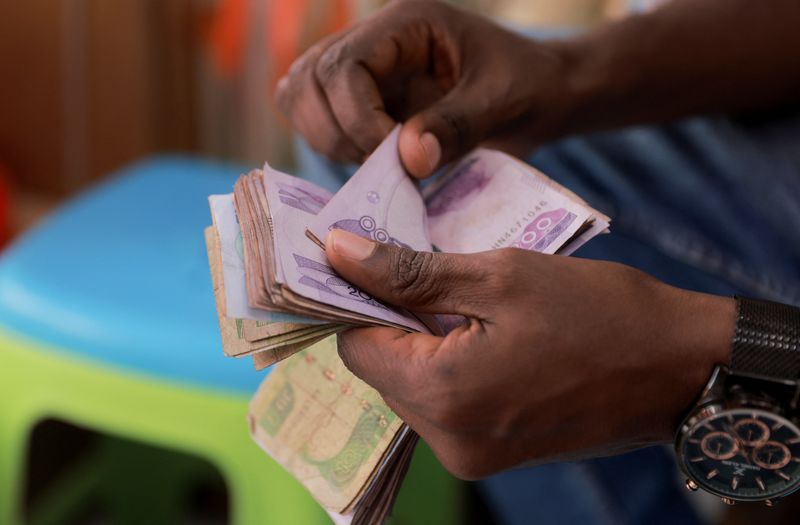By Dawit Endeshaw
ADDIS ABABA (Reuters) – Ethiopia’s central bank floated the country’s birr currency on Monday, a move it hopes will secure support from the International Monetary Fund (IMF) and make progress on a long-delayed debt restructuring.
The value of the birr against the US dollar fell 30% to 74.73 per dollar, the country’s largest lender said, Commercial Bank of Ethiopia said. The currency traded at 57.48 birr against the dollar on Friday.
The Horn of Africa country, which is struggling with rising inflation and chronic foreign currency shortages, late last year became the third economy on the continent in as many years to default on its public debt.
It is in talks with the IMF to set up a new lending programme, after the last fund-backed program agreed in 2019 was halted due to conflict in the northern region of Tigray. Negotiations resumed after a November 2022 peace deal.
The central bank said in a statement on the float that “banks may henceforth buy and sell foreign currencies from/to their customers and among themselves at freely negotiated rates” and that it would make only “limited interventions” in the foreign exchange markets. forward.
The reforms were initially announced late on Sunday by Prime Minister Abiy Ahmed.
Central bank Governor Mamo Mihretu said in an online video that as part of the reforms, Ethiopia would receive $10.7 billion in external financing support from the IMF, World Bank and other creditors.
“The IMF and the World Bank are both providing exceptional and early financing support, which will be among their highest allocations on the African continent,” he said.
Importers, who relied on the black market to secure dollars, were relieved by the central bank’s move.
“Now I no longer have to go to the black market to buy or sell dollars. It is now a market-based currency regime, so (we) will buy or sell based on the legal channels,” said a businessman in the capital. Addis Ababa, who did not wish to be named.
There was no immediate comment from the IMF. Ethiopia’s flagship $1 billion government bond fell fractionally on Monday after hitting its highest level since early 2022 in recent weeks.
The United States welcomed the shift to a market-determined exchange rate.
“Market-based exchange rates are a difficult but necessary step for Ethiopia to address macroeconomic distortions,” the US Embassy in Addis Ababa wrote on social media platform X.

Ethiopia, Africa’s second-most populous country, requested debt restructuring under the Group of Twenty’s Common Framework process in early 2021, but progress was slowed by the civil war in Tigray.
The government has already unveiled some economic reforms, which analysts say are linked to negotiations on a new IMF reform programme, including the introduction of an interest-based monetary policy earlier this month.


